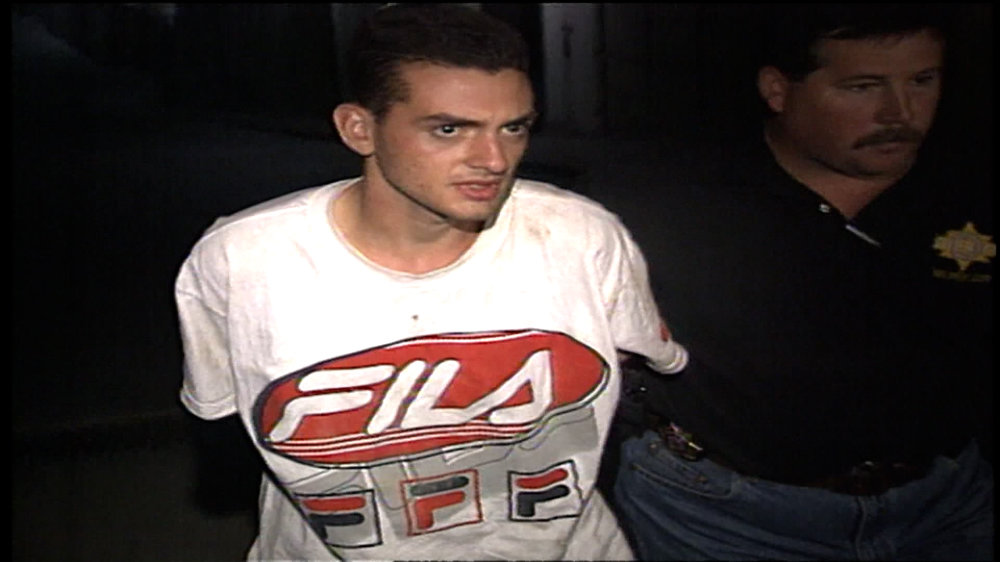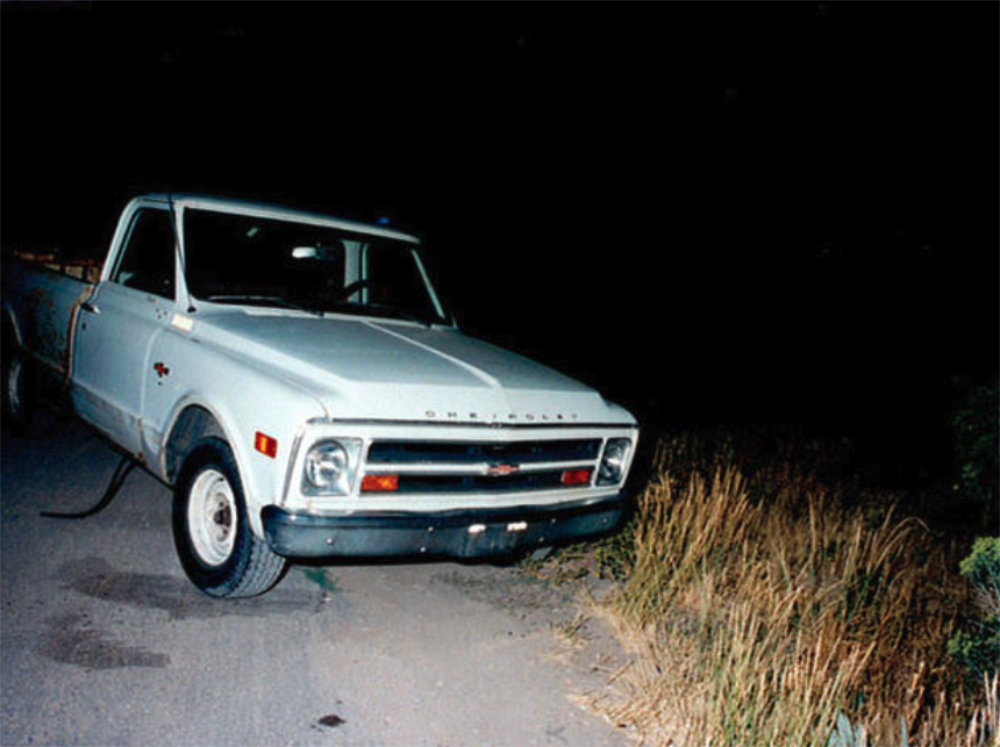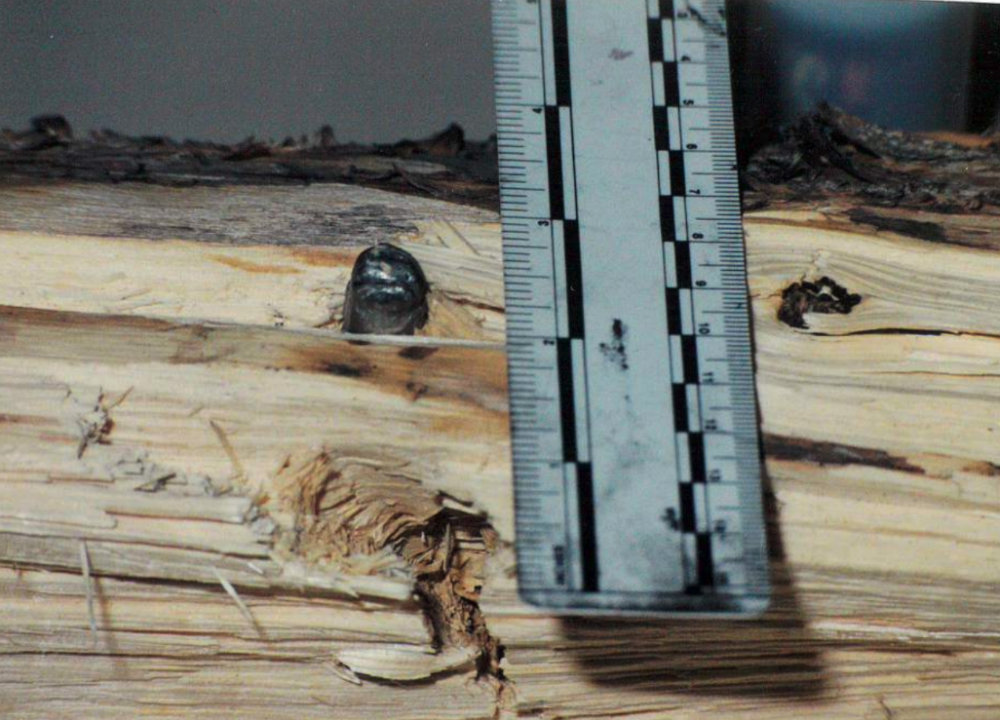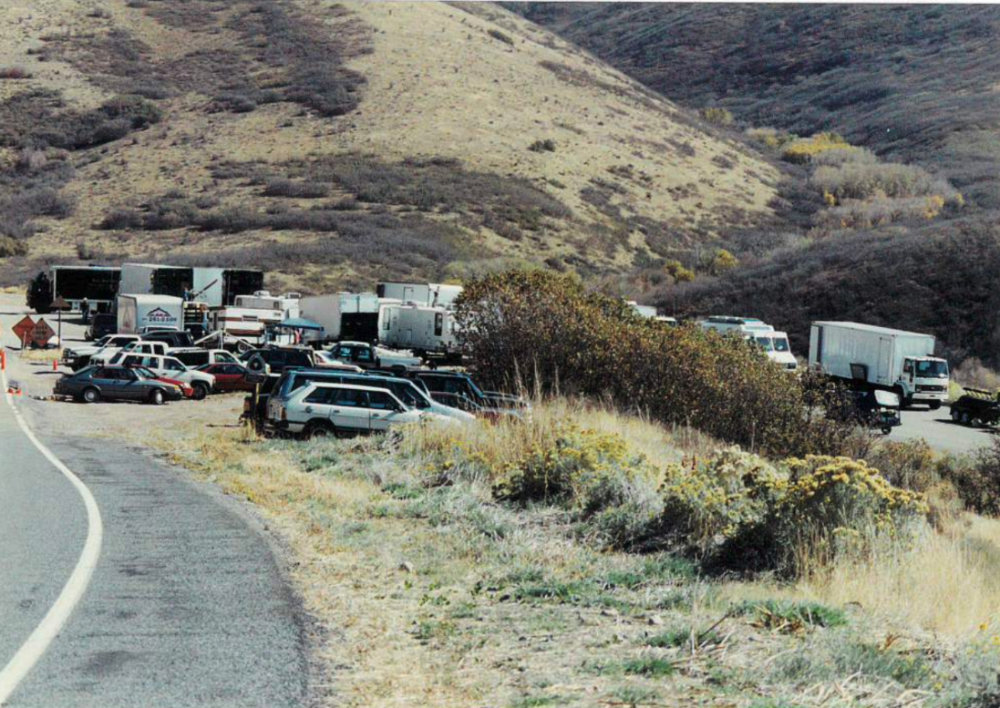
Photo credit: KSL TV
SALT LAKE CITY — Tom Watson and his wife had just finished watching the 10 p.m. news the night of August 28, 1996 when the phone rang. They let the call go to their answering machine, but when Tom heard the voice pleading for one of them to answer because he’d “done something so bad”, he told his wife to pick up the receiver.
When she did, the man immediately said, “I’ve done something real stupid.”
Watson told police his wife replied, “Here, you better talk to Tom.”
She handed her husband the phone and the 19-year-old they had befriended about a month earlier – Jorge Benvenuto – told him something that made the color drain from his face.
“Tom, I’ve really done something stupid’,” Watson told police Benvenuto said. “And I said, ‘What do you mean?’ The voice on the other line said, ‘I’ve killed two people.’”
While Watson tried to wrap his mind around what Benvenuto was telling him, his young friend grew more agitated.
“You’ll see it on the news shortly,” Watson said Benvenuto told him. “I killed them up at (Little) Dell Reservoir.”
Watson asked Benvenuto where he was, and the younger man told him he was on 10600 South in Sandy. He asked Watson to meet him.
Tom said he couldn’t meet him until 9 a.m. the next morning because he had company.
Then, in an eerily calm voice, Watson said Benvenuto told him, “I think your phone is being tapped. I’m going to hang up.”
The line went dead.
Tom immediately called the police.

Photo credit: Salt Lake County Sheriff’s office
Detectives were already at the apartment complex because the pickup truck abandoned in the parking lot of Little Dell Reservoir was registered to Jorge Benvenuto, and it listed an apartment near Watson’s on the registration.
As detectives fanned out across the valley chasing leads and looking for Zachary Snarr’s stolen Bronco, Watson called Benvenuto’s sister, Monica. The couple had known her longer, as it was her apartment Jorge had moved into in early July.
Monica told him that she had not seen her brother that day. He’d been staying with her for the last week, and he had been making plans to move out of state.
Earlier that night, she’d returned home to find police and the manager of her new apartment building trying to enter her apartment after reports of a gunshot.
There was a bullet hole in the wall above the sink, but her brother was gone.
She had no idea what happened, but around 2:20 a.m., she had another visit from the police. This time it was Salt Lake County Sheriff’s detectives trying to figure out where her brother was and why he’d shot two people he’d never met.
Watson told police he befriended Benvenuto because he seemed lonely. After his apartment was burglarized, he made a habit of visiting the Watsons, sometimes for hours at a time.
“He started coming up to the (apartment), and we thought it was kind of weird because he never brought a friend or anything with him,” Watson said of Jorge’s visits that began in July. “But he started coming up to our house, and he would sit for three or four or five hours at a time. And he didn’t have friends of his own. And my wife even asked him if he had a girlfriend. And he said, well, he had one in New York. But he didn’t have one here.”
Benvenuto moved to Utah with his family members in the fall of 1995. For the first nine months he was in Utah, he lived with his older brother in Provo. He moved in with his sister, apparently just as she was moving into a new apartment.
While Monica Benvenuto moved out of the apartment they were sharing, Jorge stayed for another few weeks as the rent was paid through the end of the month. Shortly after she left, the apartment was burglarized. Jorge, who had very few possessions to begin with, lost most of what he cared about, according to his sister.
Both Monica and the Watsons said Benvenuto was livid and fixated on finding the thief and extracting revenge.

Photo credit: Salt Lake County Sheriff’s office
It was after a second burglary that Benvenuto began talking about getting a gun.
“Somebody broke into the apartment and stole a lot of his stuff,” Monica Benvenuto told police after the shooting. “A couple of times this happened – somebody broke in and took all his tools. He had a TV – all this stuff is his. So, he was really upset about that. That’s when he got the gun.”
Watson said he talked often about whom he suspected and what he wanted to do if he found the thief.
“He was very angry,” Watson told police. “He thought that the man that lived all the way to the end of the hall from where he lived, on the left hand side, he thought that he had broke into his house; and he said, if he had the gun he ordered at that time, he says ‘I’d go down there and shoot him.’ And he seemed very disturbed.”
At 19, Benvenuto was too young to legally buy a gun for himself. Police learned from Monica that it was an older co-worker, Evan Smith, who helped him acquire the weapon near the end of July.
Smith said he and Benvenuto became friends.
“I’ve met a lot of people like Jorge at his age, you know,” Smith said. “And I was a little bit like Jorge at his age. Not to the extremes he went to, but a lot of similarities.”
His young co-worker was smart, worked hard and dreamed about moving to Las Vegas. Smith said Benvenuto confided in him on occasion, sharing the fact that his parents “had problems and had been through a divorce.”
He said he was struggling with his relationship with his sister, but Smith told police he didn’t really know the details.
“I never knew the full story on anything,” Smith said. “I really didn’t ask…That was personal information.”
Smith bought the gun on layaway and Jorge paid the payments. Once he’d paid it off, Smith took him shooting in the foothills of the West Desert.
The Monday before the shooting, Benvenuto quit his job. He told Smith he’d be leaving by the end of the week. But the next morning, Smith said Jorge was fired. He wasn’t sure why.
Once Benvenuto had the gun in his possession, he said things that his family and friends found unnerving.
As police questioned them in the hours after Snarr was killed and Yvette Rodier was in a hospital fighting for her life, they began to see warning signs that they missed before the shooting.
Monica told police, “It was mainly after he got the gun that he’s been talking about killing somebody.”
When detectives asked why, she said, “Just for no reason.”
They asked who, and she answered, “Anybody.”
“Is he angry at something right now?” the detective asked her in an interview that night.
Monica, like most who knew Benvenuto, struggled to answer that question. They seemed to agree he was angry, depressed and adrift. But no one could help police understand what led to him shooting two teens he’d never met, who’d done nothing to him and who had nothing to offer him.
A few days after the shooting, Monica Benvenuto would tell a television reporter that the burglaries and buying the gun created a uniquely concerning situation.
Her brother talked about shooting the thieves who’d stolen his property.
“I told him it’s not worth it,” she told the reporter. “You’ll spend the rest of your life in prison for somebody that took some stuff.”
Watson said Benvenuto came to his apartment the day he bought the gun. He had the handgun tucked in his waistband most days after that, and he talked about how it made him feel to take back a little of the power that thieves had stolen from him.

Photo credit: Salt Lake County Sheriff’s office
In between talking with Watson and Monica Benvenuto, detectives found Snarr’s Bronco abandoned in the parking lot of a car dealership on 10600 South – the very place Benvenuto told Watson he was when he called.
At 9 a.m. Thursday, detectives went to the place where Tom told Jorge they could meet. No one showed up.
Around 10 p.m. that night, Jorge called Tom again. He told him he’d walked to a gas station in American Fork, and he asked for money. A few minutes after that call, Lehi police approached him as he sat on a curb outside the gas station, and once they learned who he was, they called Salt Lake County Sheriff’s detectives.
They had their man.
Sgt. Jerry Townsend let his detectives know Benvenuto had been detained by Lehi police. He jumped in his unmarked car and drove south to pick him up. Almost immediately after putting the young man, covered in dust from walking along the railroad tracks, into his car, Benvenuto began talking.
“How long did it take for you guys to find the people I shot?” he asked.
Townsend detailed their conversation in a report. When Townsend told him that Rodier had survived, he was shocked.
“You mean the girl isn’t dead?” the report said Benvenuto said. “I can’t believe she’s not dead. I wish she would have died so she didn’t have to suffer.”
Detectives Keith Stephens and Kris Ownby questioned Benvenuto once he arrived at their offices. He never asked for an attorney, and confessed to the shooting right away. When asked for his reasons, he doesn’t hesitate.
“What it basically boils down to is I’m tired of living,” he said, “and I don’t want to breathe anymore.”
Stephens interrupts him, but then Benvenuto continues. He never wanted to kill anyone. The shooting “that was in the heat of the moment thing.”
He tells the detectives that he was driving around, listening to the radio “to see if I could muster enough nerve to do me in.”
Stephens asks if he was planning to take his own life, and Benvenuto says “yes”.
“Maybe I’m just too chicken (expletive) to do it myself,” he tells them. After an exchange about how these feelings led to him killing someone else, he said, “I didn’t really mean to do it, but it happened, you know. I don’t know. I don’t know what came over me.”
They discuss the fact that he reloaded the gun to make sure Rodier didn’t survive. And then he makes a request.
“Give me the death penalty,” he said. “I deserve it. You both know I deserve it.”
And then he continues, “The whole thing is really stupid. If I had it to do over, I wouldn’t do it like that. I’d leave them alone, let them live their life…and just take mine.”
The question about why a young man with no criminal history would shoot two people he’d never met would nag everyone involved in the case for years.